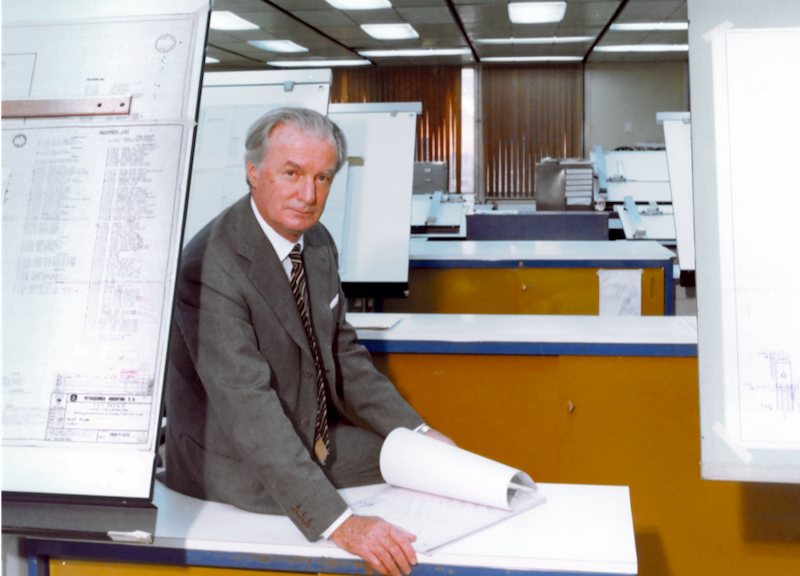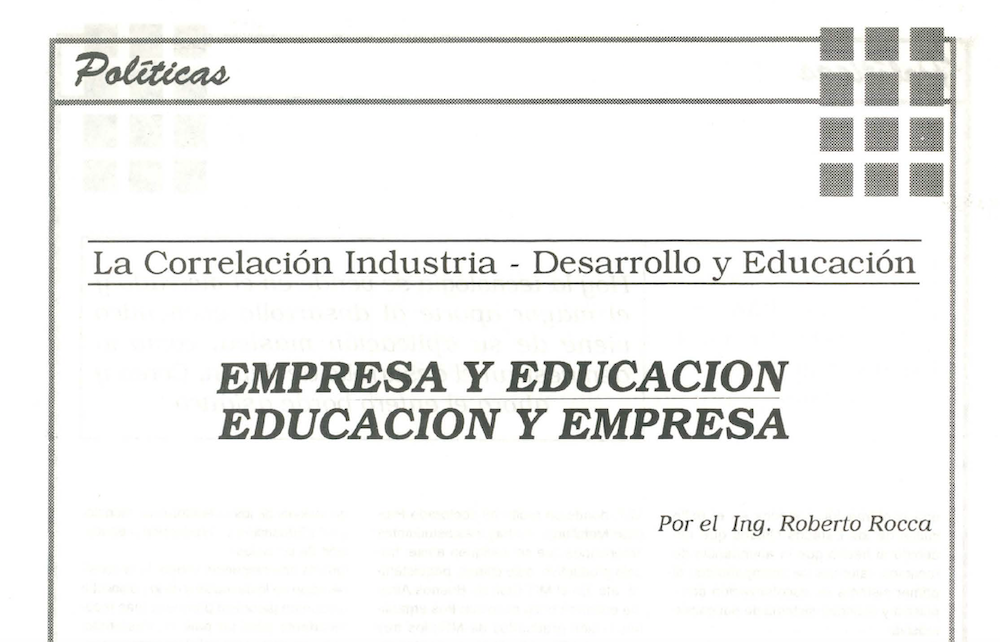Roberto Rocca, a fervent advocate for education and industrial culture from the beginning
Introduction by Andrea Masri Galli, Techint Group Archive Center.

Today, we’d like to share a document from the shelves of the Techint Group Historical Archive: an article about the relationship between education and work in companies. The article was written by Roberto Rocca in 1993 for the magazine Entelequia. Políticas de Telecomunicaciones. Telemática, Economía y Empresas (Entelechy. Telecommunications Policies. Telematics, Economy and Business). Founded in 1987, Entelequía is the only periodical to cover communications policies in Argentina, and regularly attracts contributions from leading experts such as Vittorio Orsi, Nicholas Negroponte and Guillermo Jaim Etcheverry.
In his article, Roberto Rocca revisits some of the concepts presented during the course given at the University of Belgrano in 1992, on Education in an open society”, where he was joined by renowned educationalists Dr. Antonio Battro and Antonio Salonia, the Argentine Minister of Education (1989 to 1992), both members of the National Academy of Education of Argentina. On that occasion, Roberto Rocca took the helm as the "lead teacher" on one of the six days, where he developed the theme of Business and education.

Below are the main issues discussed by the article:
- Roberto Rocca establishes a correlation between business, development and education.
- The entrepreneur is the driving force of the company, although they add something that goes beyond the management aspect: their passion and love for the company.
- Education impacts human development in multiple ways. Economic development is one of the central purposes of education, although not the only one.
- The industrialized world favors economic development, which is why it is so important to talk about education in the context of economic development.
- Roberto Rocca highlights the differences in the vision of education for economic development prevailing in Western countries, where there is a tendency towards university training, in contrast to Asian countries where educational efforts tend to concentrate on training for productive processes.
- Technology creates advantages, and being able to make the most of these requires a workforce that features experts at all levels. In Rocca’s opinion, competitive advantage springs from new process technology rather than new product technology. Process technology lies at the heart of the production equation, which is why it is necessary to have executive leaders with a technical background with a full understanding of process technology.
- Rocca suggests that the best model for Argentina should be a cultural one with a greater sensitivity towards communities and their social context, and less focused on the risks of market disorder.
Read the article on "Business and education. Education and business" (English version).

Andrea Masri Galli has a degree in Library Science and Documentation. She has been working at the Techint Group since 2006, where she began her career in the library at the Ternium plant in Canning. In 2008, she moved to the Techint Information
Business and Education. Education and business.